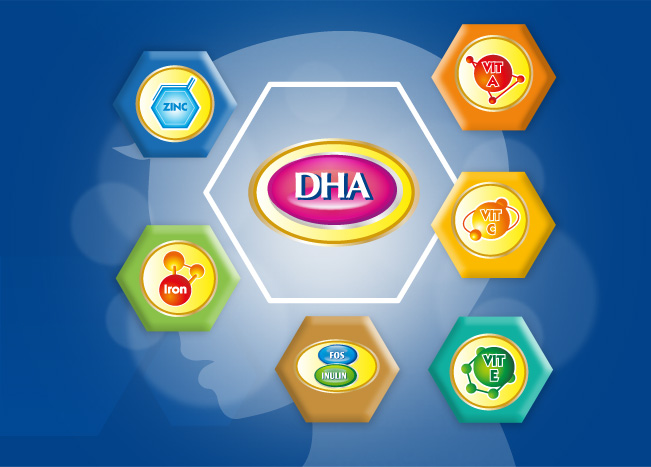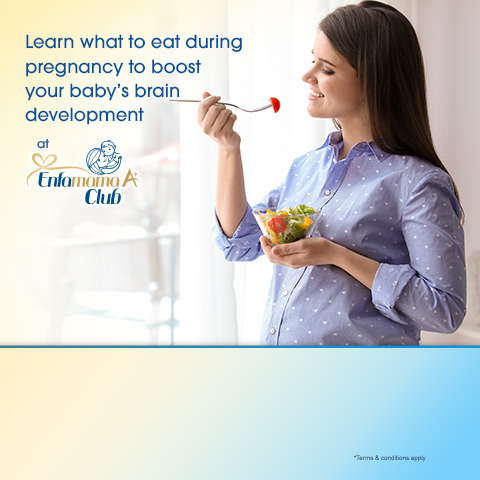Well-rounded brain development is based on two key foundations - Nutrition and Stimulation. Your child’s overall growth and brain development depend on good nutrition and stimulation that will help her reach her development milestones.
During this period, your child’s brain continues to develop rapidly. In order to help him reach his full potential, you will need to incorporate the right nutrients into your child’s diet, as good nutrition lays the groundwork for well-rounded development.

|
DHA is found abundantly in the brain.
|
|
|
Essential for growth
|
|
|
Important for red blood cell formation
|
|
|
Source of Dietary Fiber
|
|
|
Protects the fat in the body tissues from oxidation
|
|
|
Contributes to the absorption of iron from blood
|
|
|
Aids in maintaning the health of the skin and mucous membrane and helps in functioning of the eyes
|
|
|
Stimulation refers to a child’s active interaction with not only her parents but also with her environment. Stimulation helps to strengthen connections within a child’s brain encouraging development milestones. By understanding the milestones that signal development, you will be able to measure and track your child’s progress.
Encourage Milestones for Your Child

|
1 Year
|
|
|
2 Years
|
|
|
3 Years
|
 |
4 - 5 Years
|


















